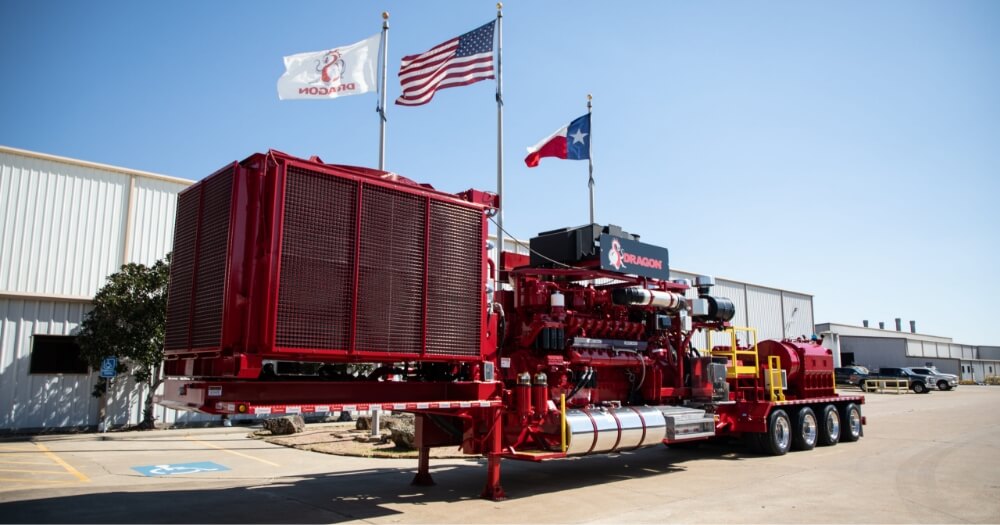
23 Sep What Is a Frac Tank? Understanding Its Uses in the Oil and Energy Industry
Anyone who hauls fluids will tell you that a frac tank is essential for keeping the oil and energy sectors running smoothly. So, what is a frac tank, how is it used, and where do you go for the best frac tank? Whether you've been hauling for a while or are new to the industry, we have the answers you're looking for.
Dragon Products is a leading expert on frac tanks, their uses, and components. You can trust us for the information you need.
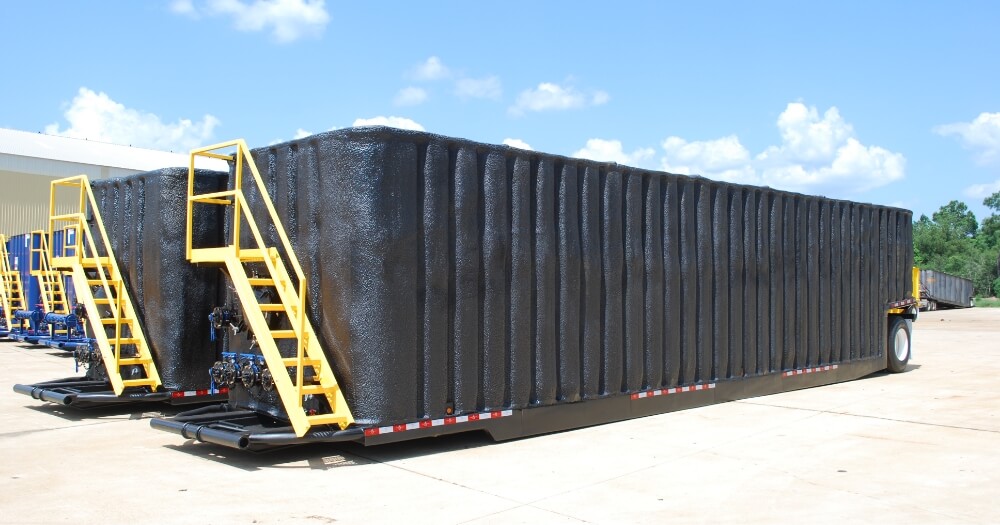
IN THIS ARTICLE
What Are Frac Tanks Used For?
Frac tanks, also known as mud tanks, are heavy-duty, large-capacity containers crucial for the oil and energy sectors. These tanks, crafted from heavy-gauge steel, are essentially semi-trailers equipped with tires, air brakes, lights, and mud flaps, making them fully mobile and adaptable to various site conditions. Typically, a Dragon frac tank can store up to 500 barrels — about 21,000 gallons — of fluid, arriving empty at the worksite and filled on-site through vacuum or water trucks.
These tanks are versatile enough to house a variety of substances, including chemicals, petroleum products, manure, proppants, and saline water. You can transport a frac tank using a roll-off trailer or truck. For longer distances, use a power-only tractor. This mobility and flexibility make frac tanks indispensable in field operations, where they hold and transport essential fluids and materials efficiently.
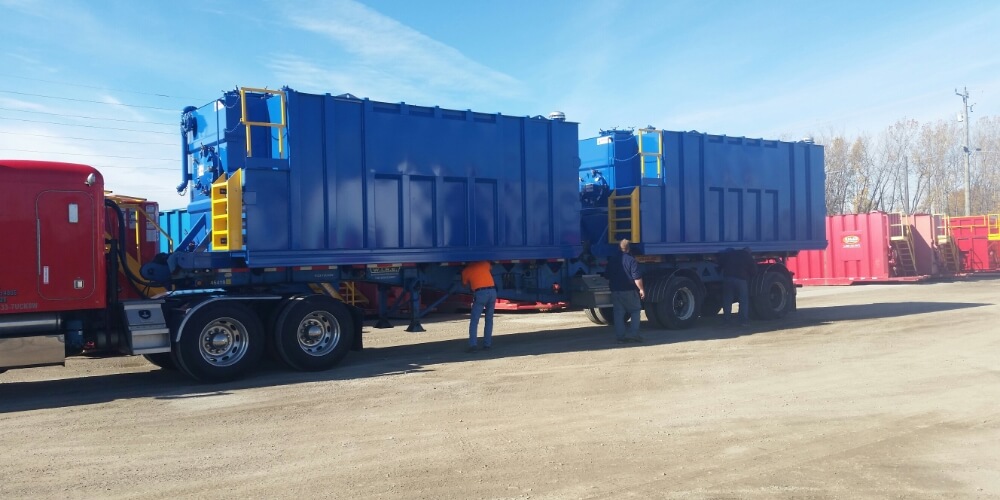
Fluid Storage
Frac tanks are storage units for the various fluids needed in the fracking process, such as water, oil-based fluids, or other chemical mixtures. These tanks are spacious and secure, ensuring that substantial volumes of liquid can be held and maintained without contamination or leakage. By providing on-site fluid storage, frac tanks reduce the logistical challenges of transporting large amounts of liquids to and from remote drilling sites, thus streamlining operations and reducing downtime.
Chemical Mixers
In hydraulic fracturing, chemical mixes are required to optimize the extraction process. Frac tanks serve as on-site chemical mixing stations where different chemicals can be combined in specific proportions as needed. This capability is vital because it allows for real-time adjustments to the chemical blend based on the geological conditions encountered during drilling, ensuring the fracking process is as efficient as possible.
Spill Containment Guardians
Environmental safety is a top priority in oil and energy operations, and frac tanks play a significant role in spill prevention and containment. Equipped with rugged structures and containment features, these tanks act as a first line of defense against spills, safely holding hazardous materials in case a leak or rupture occurs in other parts of the operation. This containment is critical for protecting the environment and complying with regulatory standards that govern the handling of potentially harmful substances.
Types of Frac Tanks
Frac tanks come in various designs, each built to meet specific industrial fluid storage and management needs. Here's an overview of the different types and what they're used for:
- Smooth Wall, Round Bottom Frac Tanks: Smooth interior walls facilitate easy cleaning, making them ideal for thicker or higher-viscosity liquids that need regular mixing or circulating. The round bottom enhances the fluid movement. It's constructed of quarter-inch steel plate for durability.
- Heavy-Duty Industrial Storage Frac Trailers: These frac trailers are made for the oilfield environment, with quarter-inch corrugated steel plate, which provides exceptional strength for storing industrial oilfield liquids.
- Corrugated Wall, V-Bottom Frac Trailers for Liquid Storage: Made from quarter-inch heavy-duty corrugated steel and lined with chemical-resistant materials, these tanks are perfect for storing frac water, brine, processed water, and other hydraulic fluids. Insulated models are available for enhanced temperature control.
- V-Bottom Frac Trailers With Smooth Walls: The V-bottom design with integral formed side channels simplifies draining. It comes equipped with multiple connection points for filling and emptying, including a 4-inch drain and a 3-inch fill pipe.
- Industrial Mini Frac Tanks: Compact yet powerful, these tanks boast an 8,500-gallon capacity and handle liquid waste. Their smaller size and mobility via roll-off trailers or trucks are ideal for locations with space constraints.
Run Wet Frac Sand in a Few Simple Steps! - Dragon Blender
Dragon's 130 BBL Frac Sand Blender is designed for seamless operation with wet and dry sand.
FAQs About Frac Tanks
Below, we've answered some common questions about frac tanks. For more information, please give us a shout at 800.231.8198.
What is a frac tank trailer?
It's a frac tank on the move! Because it's designed for easy transport, a frac tank trailer makes relocating large volumes of fluid a breeze – perfect for multi-site operations.
What are the benefits of owning a frac tank?
From boosting operational efficiency to ensuring compliance with environmental standards, owning a frac tank is like having an insurance policy for smooth and sustainable operations.
How do you maintain and clean a frac tank?
Regular maintenance of your frac tank should include inspecting for any structural damage, checking for leaks, and ensuring that valves and fittings are secure. Cleaning a frac tank involves removing any residual materials from previous contents, which may require specialized cleaning solutions or equipment, depending on what the tank held. Properly maintaining and cleaning these tanks extends their usable life and prevents cross-contamination between different uses.
Find Your Frac Tank at Dragon Products
When you need a frac tank that performs year in and year out, rely on Dragon Products. We've got the frac tank trailers and liquid tank trailers that boost your operations. Need tank and trailer parts? Yep, we can help with that, too. Find a Dragon Products location near you, or get a quote today!
REQUEST A QUOTE


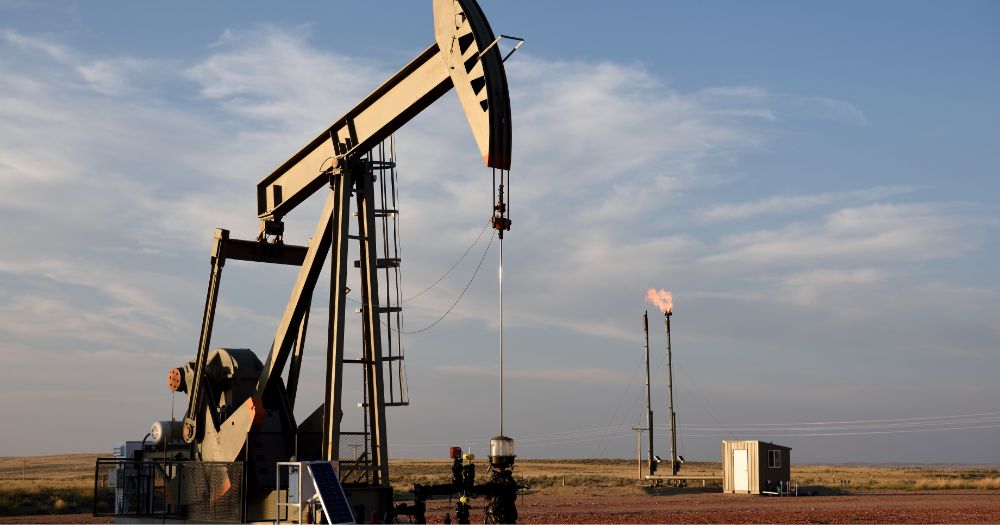
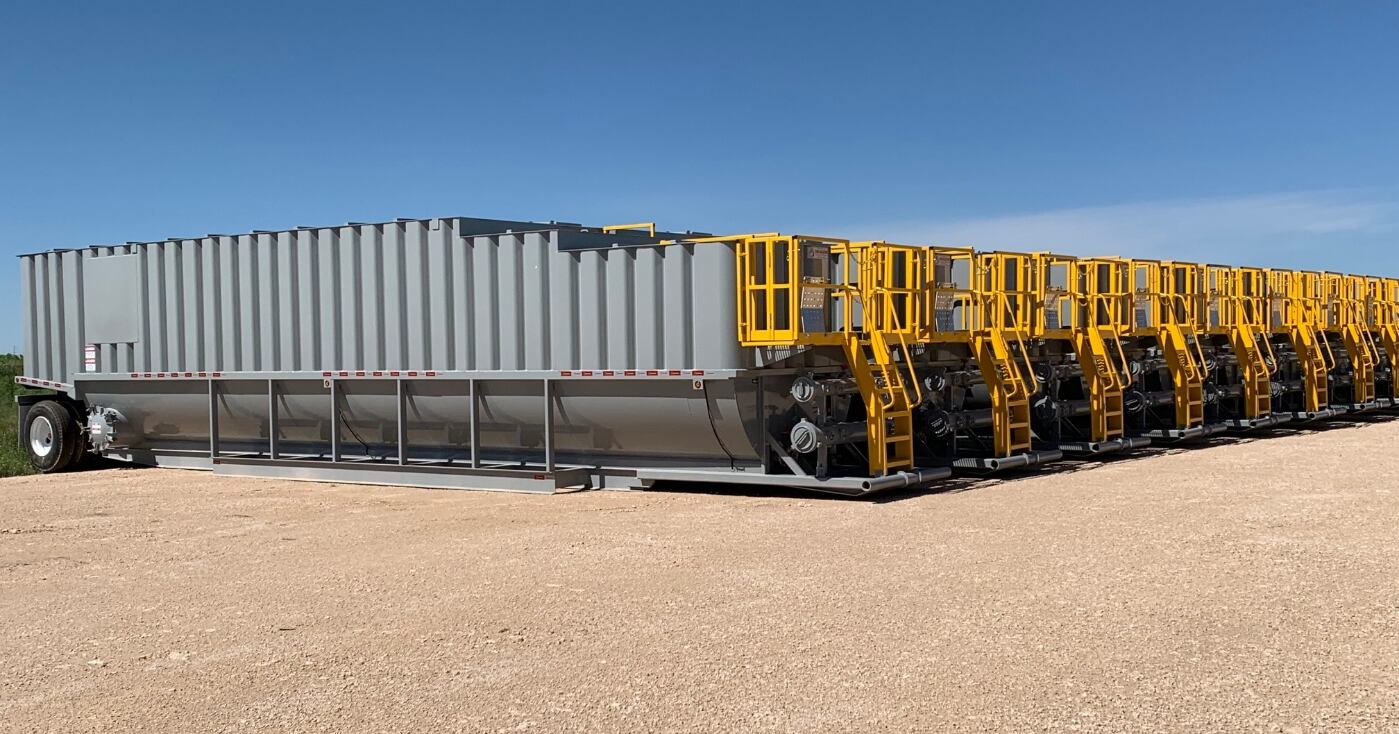
Sorry, the comment form is closed at this time.